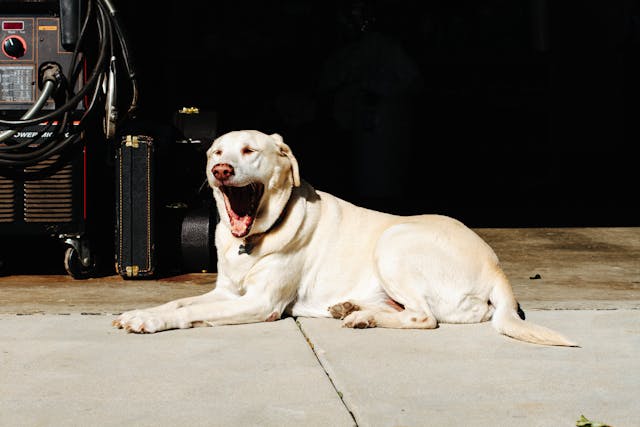
Why do we yawn? There is no single clear reason why we yawn because we yawn at many different times for many different reasons.
Yawning is an involuntary response, in that it happens without us thinking about it and we cannot stop once we have started, just like sneezing. In a yawn, we gradually open our mouths as wide as we can, breathing in slowly while we do it. Once our mouths are at their maximum range, we pause, stretching the muscles, and then breathe out. The whole yawn takes a few seconds. Yawns are said to be contagious, in that if you see someone yawn it is likely to make you yawn as well. All people yawn, and even fetuses in the womb have been observed yawning.
Yawning is not only a human trait. Mammals, birds, reptiles, and even fish have been seen yawning. That means, whatever the reason for yawning, it is something that has to span all creatures. It might not necessarily have the same functions and could be a case of convergent evolution. That is when several different organisms evolve to have the same characteristics. Flight is a good example. Birds, bats, and insects have all evolved to fly, but not at the same time. Flight obviously has such an advantage that all these different species evolved to have it, and yawning could be similar. Let’s look at the popular theories of why we yawn.
The first theory is that it wakes us up, or rather it wakes up our brain. We are most likely to yawn when we are tired or when we are bored. If we are getting sleepy, or are becoming bored by a specific task, our ability to concentrate will decrease, which could be dangerous. When we yawn, our heart rate increases, we take more oxygen in, and we stretch the muscles in our face. All of these things could serve to wake us up and make us more attentive. It could be a safety feature. This would be a far more necessary feature in animals that are at risk of being eaten. We are generally safe if we get drowsy, unless we are driving, so yawning might be a feature that we don’t need much anymore. Prey animals might yawn to wake themselves up so that they are more aware of their surroundings and more able to run away if a predator appears. However, you could argue that predators, like lions, also yawn. That might be because they always need to be alert and on the lookout for prey.
This could also explain why yawning is contagious. If one animal is becoming sleepy and inattentive, it is likely that the whole herd is feeling the same way. A yawn that spreads through the herd will wake them all up and be advantageous.
This theory could also be supported by the fact that many people yawn when they are nervous or stressed. Paratroopers about to exit an airplane have been observed yawning. When we are nervous, our bodies know that we need to jump into action and yawning could make us more attentive.
A second theory is that we yawn when we have a buildup of carbon dioxide in our blood. When we yawn, we breathe in slowly and deeply, taking in more oxygen. However, experiments have shown that people yawn just as often no matter how much oxygen or carbon dioxide is present in the air. This would also mean that people climbing Everest would be more likely to yawn than people at the bottom. I wonder if that has been tested.
A third theory is that we yawn to control the temperature or pressure in our brain. When we yawn, we take in excess air, which will cool our heads down. We also move the muscles in our face, which alters the blood flow in our faces. Opening our mouths wide may also alter the pressure in our brains. This is hard to test, but experiments where someone wore an icepack on their head reduced the amount of times they yawn. That would mean that people who live in cold countries yawn less than people who live in warm countries. I don’t know if that could be proven or not. It also wouldn’t explain why cold-blooded animals yawn.
A fourth theory is that yawning is a way of communicating. When we yawn, or see someone yawning, our emotions tend to sync. A herd of animals could be syncing their moods or sleeping patterns when they yawn. It is often said that contagious yawning is more common the more empathetic someone is. Experiments on children with autism show that they don’t yawn contagiously, so there could be some evidence for that.
Ultimately, there are several theories, but no single answer. And this is what I learned today.
Try these next:
Sources
https://my.clevelandclinic.org/health/body/yawning
https://en.wikipedia.org/wiki/Yawn
https://www.cbsnews.com/news/why-fish-birds-animals-humans-yawn-expert
https://en.wikipedia.org/wiki/Convergent_evolution
Photo by Isaac Taylor: https://www.pexels.com/photo/adult-yellow-labrador-retriever-1557254/
